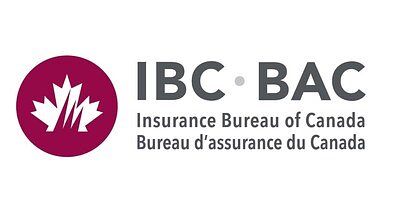
BC Earthquake Risk: Economic Fallout Looms as Canada Lags on Disaster Preparedness
A new report reveals British Columbia faces catastrophic economic losses from a major earthquake. Canada's lack of a national disaster financial mechanism is raising alarm bells amongst insurers and economists.
BC Earthquake Risk: Economic Fallout Looms as Canada Lags on Disaster Preparedness
NEW YORK, NY – November 20, 2025
The Rising Seismic Threat to British Columbia
A new provincial assessment has laid bare the significant and growing earthquake risk facing British Columbia, potentially unleashing economic devastation that could ripple across the Canadian economy. The Disaster and Climate Risk and Resilience Assessment (DCRRA) reveals that 92% of the province’s population and 90% of its businesses are exposed to seismic risk, painting a stark picture of vulnerability. The report estimates a magnitude-9 earthquake could inflict $128 billion in economic losses, halve provincial economic growth, and result in the loss of 43,700 jobs over the following decade. The findings are prompting renewed calls for a national disaster financial mechanism, something Canada currently lacks, placing it as an outlier amongst G7 nations.
Canada's Preparedness Gap: An International Comparison
The DCRRA underscores a critical weakness in Canada’s disaster preparedness infrastructure. While earthquake-prone nations like Japan, the United States (California), and Italy have established systems to mitigate financial losses from catastrophic events, Canada remains conspicuously absent. “The lack of a federal financial backstop isn’t about if a disaster will happen, but when,” says one industry analyst. “British Columbia is particularly vulnerable, but the risk extends to other regions. We’re essentially gambling with the economic stability of the country.”
The absence of such a mechanism means that insurers would bear the brunt of the financial fallout from a major earthquake, potentially leading to widespread insolvencies and leaving many businesses and homeowners underinsured or uninsured. The Insurance Bureau of Canada (IBC) has been advocating for a federal solution for years, arguing that a shared risk pool is the most effective way to protect the Canadian economy. “It’s not about a bailout for insurers, it’s about ensuring that Canadians are protected and that the economy can recover quickly,” explains a spokesperson for the IBC. “A major earthquake would have far-reaching consequences, and the cost of inaction far outweighs the cost of preparedness.”
Economic Impacts: Beyond the Initial Shock
The DCRRA’s projections of $128 billion in economic losses are alarming, but the true economic impact could be even more significant. A major earthquake would disrupt supply chains, damage critical infrastructure, and lead to widespread business closures. “The immediate impact would be devastating, but the long-term consequences could be felt for years,” says an economist specializing in disaster risk. “We’re talking about a potential contraction of the provincial economy, a decline in employment, and a loss of investor confidence.”
The assessment highlights the vulnerability of key industries, including tourism, forestry, and resource extraction. Damage to ports and transportation infrastructure would disrupt trade, while power outages and communication failures would cripple businesses. Moreover, the loss of affordable housing and the displacement of communities would exacerbate social and economic inequalities. The report also notes that the projections are likely conservative, given British Columbia’s continued population growth and construction activity since the underlying data was compiled in 2016. The increasing density of urban areas and the proliferation of high-rise buildings have increased the potential for damage and loss of life. “We’re building more and more in areas that are known to be seismically active,” says a geologist specializing in earthquake risk. “We need to incorporate earthquake resilience into our building codes and land-use planning.”
Homeowners and Businesses Face Increasing Uncertainty
The growing earthquake risk is creating uncertainty for homeowners and businesses in British Columbia. While earthquake insurance is available, it can be expensive and often doesn’t cover all potential losses. Many homeowners are hesitant to purchase earthquake insurance, either because they can’t afford it or because they believe the risk is low. “People tend to underestimate the risk of earthquakes, especially if they haven’t experienced one personally,” says one insurance broker. “They think it’s something that will never happen to them.”
Businesses, particularly small and medium-sized enterprises, are also vulnerable. Many businesses lack the financial resources to recover from a major earthquake and may be forced to close permanently. The lack of a comprehensive disaster preparedness plan can exacerbate the problem. “Businesses need to assess their vulnerability and develop a plan to protect their employees, assets, and operations,” says a business continuity consultant. “This includes things like securing critical data, backing up systems, and establishing alternative supply chains.”
The DCRRA’s findings are a wake-up call for policymakers, insurers, and individuals. A proactive approach to disaster preparedness is essential to mitigate the economic and social consequences of a major earthquake. This includes investing in earthquake-resistant infrastructure, strengthening building codes, and developing a comprehensive disaster response plan. The time to act is now, before the “big one” strikes and the consequences are catastrophic.
